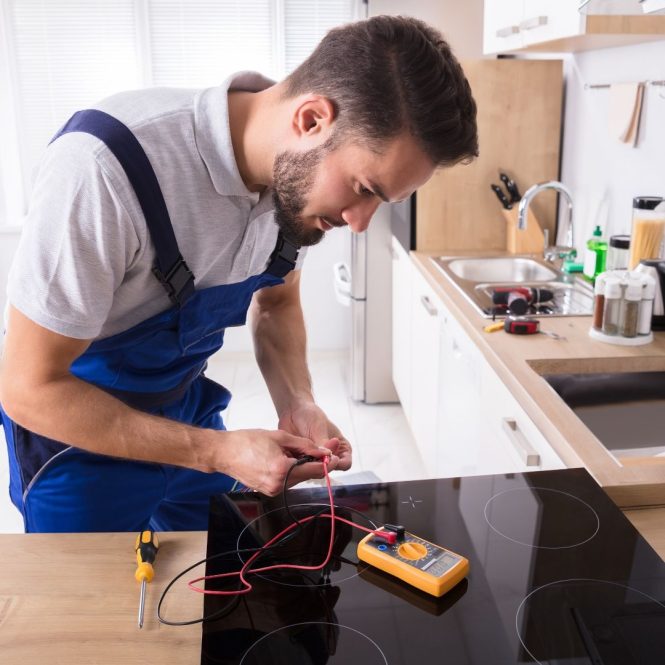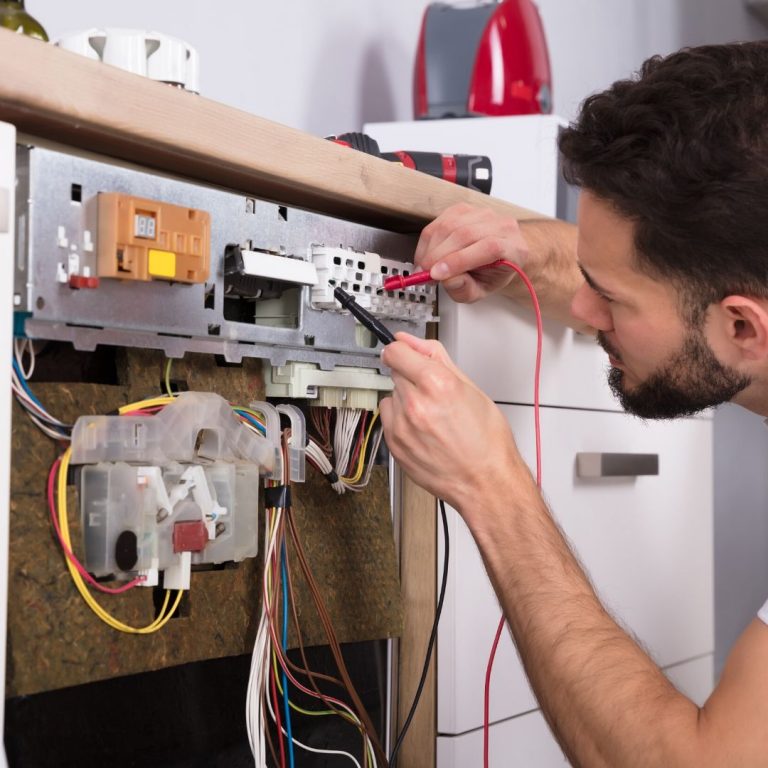

Kitchen appliance repairs are a crucial aspect of maintaining a functional and efficient kitchen environment. Whether it’s a faulty refrigerator, a broken oven, or a malfunctioning dishwasher, knowing how to diagnose and address these issues can save you significant time and money. This comprehensive guide will equip you with the essential knowledge and strategies for tackling common kitchen appliance repair problems. We’ll cover essential troubleshooting steps, explore DIY repair options, and highlight when professional help is necessary. This guide will walk you through the process from initial problem identification to effective solutions. We’ll break down the process into different appliance types, providing you with specific techniques and tips for each. Let’s get started!
Understanding Common Kitchen Appliance Problems
Identifying the Source of the Issue
Kitchen appliances can malfunction due to several factors, from simple user errors to more complex mechanical or electrical issues. The first step in addressing any appliance problem is accurate identification of the source. Understanding the function of a specific appliance and its potential areas of weakness can aid in problem-solving.
Many common issues stem from user error such as improper use, overloading, or exceeding the recommended capacity, inadequate maintenance, incorrect installation, and power surges or voltage fluctuations. Improper maintenance, such as failing to clean regularly, neglecting to remove food particles from the appliance, or ignoring visible signs of wear and tear, are frequent culprits. Over time, components can wear down, potentially leading to more serious breakdowns. It’s important to look at the owner’s manual for specific usage instructions or maintenance schedules. Taking preventive measures, such as promptly addressing potential issues like corrosion or loose connections can be crucial.
Diagnosing Refrigerator Malfunctions
Common Refrigerator Problems
Refrigerators are vital kitchen appliances, and their malfunctions can significantly impact daily routines. A malfunctioning refrigerator can result in spoiled food, reduced storage space, and inconvenience. Knowing the common causes and remedies can save you valuable time and money.
Several issues can cause a refrigerator to malfunction including temperature fluctuations in the refrigerator or freezer, strange noises coming from inside the appliance, water leaks, and complete failure to cool. Troubleshooting these issues effectively requires a step-by-step approach. These problems can often be addressed with simple adjustments and maintenance procedures. For example, ensure the appliance is properly leveled and that there aren’t any obstructions preventing proper air circulation.
Troubleshooting Techniques for Refrigerators
Firstly, check the power supply. If the refrigerator isn’t getting power, the issue may lie with a tripped circuit breaker or a power outage. Secondly, ensure that the refrigerator door seals properly. A poor seal can cause temperature inconsistencies, leading to food spoilage. If the problem persists, try adjusting the thermostat to the appropriate setting.
Repairing Oven Issues
Common Oven Problems
Ovens are essential appliances for cooking and baking. However, problems like uneven heating, malfunctioning elements, and malfunctioning timers are not uncommon. A well-maintained oven extends its lifespan, minimizing repair costs and potential safety risks.
Common oven problems include faulty heating elements, burned-out pilot lights, incorrect temperature settings, malfunctioning timers, and uneven heating patterns. Understanding the common causes of these issues can be beneficial, enabling proactive identification and quick resolution. Regular maintenance plays a crucial role in preventing significant problems. Regular cleaning of the oven and its components is vital in maintaining proper functionality. Also, pay close attention to the warning signs of potential problems, such as unusual noises or odours emanating from the oven. This allows for a proactive approach to maintenance and repair.
How to Diagnose Oven Issues
Begin by checking the power supply. Examine the wiring connections and the circuit breaker. Verify that the oven is receiving the proper electrical supply. Further, evaluate the appliance’s thermostat setting and ensure it aligns with the desired temperature. Next, inspect the oven’s heating elements, examining them for signs of damage or burning.
Dishwasher Troubleshooting
Dishwasher Malfunctions
Dishwashers make doing dishes significantly easier. However, malfunctions can result in dirty dishes and wasted time. Proactively addressing these issues can save time and prevent extensive damage.
Common issues include clogged filters, leaks, malfunctioning spray arms, malfunctioning pump or drain, and improper water pressure. These issues can stem from several reasons such as incorrect loading, inadequate maintenance, or problems with the plumbing or electrical connections. Proper maintenance, including regular filter cleaning and inspecting the drain lines, is crucial. A clogged filter or blockage in the drain pipe can hinder the dishwasher’s operation and even lead to potentially serious issues like flooding.
Dishwasher Repair Strategies
Start by examining the dishwasher’s filter to check for clogs or debris buildup. Replace the filter, if necessary, and run a test cycle to ensure that the drain is functioning correctly. Listen for any unusual noises, like rattling or grinding, which could indicate a malfunctioning component. Furthermore, examine the spray arms to ensure they are spraying water evenly over all areas.
Professional Appliance Repair Services
When to Seek Professional Help
Not all kitchen appliance problems can be fixed by an inexperienced DIYer. Some issues can be hazardous, and others require specific tools or skills to remedy properly. Seeking professional appliance repair help is essential if you have concerns about your safety or the proper operation of your appliances.
Many factors influence the need for professional assistance, such as complicated wiring, complex parts, or potential electrical hazards, or repairs that require specialized tools or skills. Additionally, if you have already taken preventative measures, including checking the appliance’s manuals or consulting online troubleshooting guides, and the problem persists or you encounter any doubts about the repair’s complexity, professional help is recommended. Professional repair services often use qualified technicians with experience in handling different appliance types and can quickly pinpoint the root cause of the problem and fix it efficiently.
In conclusion, kitchen appliance repairs can save you money and protect the environment. By understanding the common causes of appliance malfunctions, seeking professional help when needed, and performing simple maintenance tasks, you can significantly extend the lifespan of your kitchen appliances. Our comprehensive guide has provided valuable insights into this area. Ready to tackle your appliance repair needs? Click here to explore our repair services!